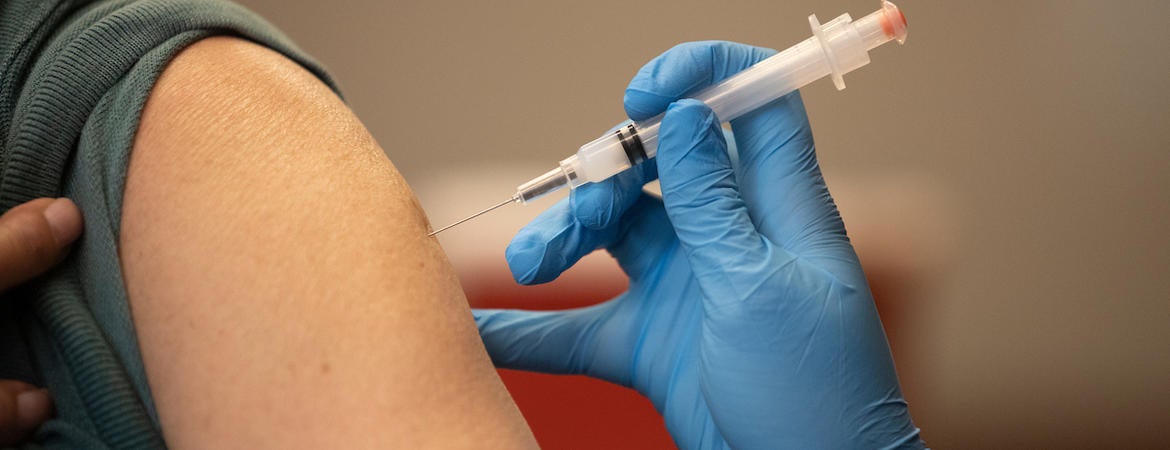
Will Americans soon be needing just one COVID-19 booster vaccine annually along with their flu shot? Marking a turning point in the pandemic, Dr. Anthony Fauci, the chief medical advisor to President Biden, said on Tuesday, “In the absence of a dramatically different variant, we likely are moving towards a path with a vaccination cadence similar to that of the annual influenza vaccine.”
Experts at the School of Medicine at the University of California, Riverside, answer a few questions people are asking about the yearly shots for protecting against COVID-19.
Brandon Brown, professor of social medicine, population, and public health
Q. How could vaccine fatigue be overcome so that most Americans get their annual booster shots?
Framing the vaccine as a way of protecting ourselves is important. COVID-19 vaccine boosters will become a normal part of our lives so that we and those around us are protected as we go about our daily routines. COVID vaccines and boosters can be viewed as our annual protection from the virus, similar to the annual flu vaccine we get to protect us each year.
David Lo, vaccine expert and distinguished professor of biomedical sciences
Q. How might an annual booster shot differ from the booster shots many Americans have received?
In general, getting an annual booster is no different from getting the annual flu vaccine. In the case of flu, the virus mutates rapidly, and so new variants are frequently circulating around the world; therefore, a new set of flu vaccines is needed each year. The main new thing about the COVID vaccine is that it is an RNA vaccine, the first ever in wide use around the world. This may be the new trend in vaccines for emerging viral diseases, and I would not be surprised if this becomes the standard for the annual flu vaccines as well.
In the case of COVID, we’ve been surprised by the mutation rate and emergence of new, more contagious variants, and so it is possible that, as with flu, we might be seeing annual COVID shots to match newly emerging variants. We’re still learning about the biology of COVID and working to figure out the pace of emergence of new variants as well as the changes in the effects of infection by new variants, including lethality. One extreme scenario is that the virus mutates to the point where it is no more dangerous than cold viruses, while retaining its high contagiousness. If it continues its rapid rate of mutation with multiple mild variants, we could even be at a point, as with the cold viruses, where we don’t even bother with regular vaccination. But it is still too early to know for sure and we still have much to learn about this new virus.
Q. Could one vaccine provide immunity against both the flu and COVID-19?
The annual flu shot is not a single vaccine; it is a mixture of separate flu vaccines, with each component targeting a different flu variant, depending on the season, and educated guesses about which variants will spread globally. They’re just mixed into a single shot. The common childhood vaccines such as DPT (diphtheria, pertussis, tetanus) and MMR (measles, mumps, rubella) are also just mixes of vaccines with each component specific for a different disease. Clinical trials are already testing vaccines that are mixtures combining flu and COVID vaccines. Here, each separate vaccine is specific for each virus or variant. We don’t have a universal flu vaccine targeting all emerging variants, and it is unlikely that we’ll have a universal COVID vaccine very soon. And, of course, we also won’t have a single vaccine that can target both flu and COVID at the same time, which is why the mixtures are likely to still be necessary.




